
 DEDICATION
DEDICATION 
This book is dedicated to three wonderful women Marie, Jeanne, and Anny my inspiration in life and for this book.
Special thanks to Anne Dolamore, my editor, for blowing new life in this book and believing that not everything should be virtual in this world.
A heartfelt thank you to my friend Wendy Littlefield, the fairy godmother of the smaller independent Belgian breweries and all things Belgian. A passion we share since the very beginning of this adventure.
I especially dedicate this book to all the fervent cooks, foodies and gourmets who, over the years, have tried out the recipes of my book, enjoyed the food and found out why I can honestly say that everybody eats well in Belgium! Thank you.
This edition published in 2014
by Grub Street
4 Rainham Close
London SW11 6SS
www.grubstreet.co.uk
email:
Twitter: @grub_street
Text copyright Ruth Van Waerebeek 1996, 2014
Copyright this edition Grub Street 2014
First published in 1996 in the United States as Everybody Eats Well in Belgium Cookbook
by Workman Publishing, New York
Photography Regula Ysewijn
Food Styling Jayne Cross
Design Sarah Baldwin
The moral right of the author has been asserted
A CIP record for this title is available from the British Library
ISBN 978-1-909808-18-8
eISBN 978-1-910690-61-1
Mobi ISBN 978-1-910690-61-1
All rights reserved. No part of this publication may be reproduced, stored in a retrieval system, or transmitted in any form or by any means, electronic, mechanical, photocopying, recording or otherwise, without the prior permission of the Publisher.
EUROPES BEST-KEPT SECRET
When shopping for dinner, a Belgian will happily go twenty minutes out of her way if it means her family will enjoy a better loaf of bread or a more tender bunch of asparagus. Food is an extremely important part of Belgian life. Not only do Belgians spend considerably more money on food than the average westerner, but they also devote a great deal more time and energy to discussing it, shopping for it, preparing it, and consuming it. The Belgian approach to food is perhaps best summed up in the following motto: We eat three times a day, so wed better try to make a feast of it every time.
But what is Belgian food? When faced with this question, most people might answer, after a puzzled pause, French? German? or, perhaps, Dutch? Even other Europeans find Belgian cuisine enigmatic. To a great extent, that sad fact is our own fault, since Belgians tend to keep a low, even self-effacing international profile. But it is all the more confounding when you consider that Belgian food is truly some of the finest Europe has to offer and that Belgium has more three-star restaurants per capita than France.
Although present-day Belgium can aptly be described as a nation tied to its traditions, its very culture sprang from a pastiche of foreign influences. Over the centuries, Belgium has been invaded by almost every other European people including the Romans, Vikings, Spanish, French, Germans, and Dutch effectively becoming a meeting point for the Germanic cultures of northern Europe and the Latin cultures of the south. Favourite cooking techniques, ingredients, and styles of the invaders were picked up by the natives, who by the Middle Ages, had developed a cuisine they could call their own. Now we Belgians are fond of saying that our food is cooked with French finesse and served in portions of German generosity. At some point, the urge to forge and preserve this hard-won and slow-cooked identity eventually became a sort of national mania, reflected in a native suspicion of strangers and a hard-shelled, highly conservative resistance to any further exotic influence. Our customs, traditions, folklore, and festivals were frozen in time, along with our cuisine, which has remained doggedly faithful to its origins.
A MEDIEVAL BIRTH
Belgian cuisine is still deeply rooted in medieval cookery. The influence of the Middle Ages, a time when Flemish culture was very highly developed, can be seen today in the way we use condiments, mustards, vinegars, and dried fruits to obtain delicate balances of sweet-and-sour or sweet-and-salty in the same dish; in our use of fresh and dried fruits and nuts, particularly almonds, to enhance flavour and presentation. The spices we use so abundantly to season everything from meats to vegetables, desserts, and wine nutmeg, cinnamon, peppercorns, saffron, ginger, and bay leaves can be traced back to the spices of the Middle Ages. We love fresh herbs, particularly chervil, tarragon, thyme, sage, parsley, and chives. These are the same ones that grew in the herb gardens of the medieval monasteries, and we use them lavishly. We drink more beer than wine and produce more than 300 varieties, many of them crafted by small artisanal brewers whose family recipes and techniques go back hundreds of years. The exuberant and subtle beer cuisine of Belgium is just now beginning to have an influence outside of our borders.
Belgians love potatoes in nearly every guise; fried potatoes are practically the Belgian national dish. Mussels, another passion, are eaten regularly in great quantities, always accompanied by Belgian fries. Belgians are definitely a nation of meat lovers, consuming large quantities of pork, beef, veal, chicken, and rabbit. We also eat a large amount of game, everything from rabbit to wild boar, and wild birds of every sort duck, grouse, quail, partridge, and dove. We often make a meal of our excellent charcuterie accompanied by a selection of breads and a glass of beer.
We are famous for our fresh vegetables (who has not heard of Belgian endive or Brussels sprouts?) as well as for waffles, and of course, chocolate. Belgians have a very well-developed sweet tooth; I think it is fair to say that we have unparalleled cravings for chocolate. Not only do we produce some of the finest chocolate in the world, but the average Belgian consumes nearly seven pounds more per year than his western counterpart. In short, everybody eats well in Belgium.
Given this bounty of wonderful food, it may surprise you to learn that there are few cookbooks devoted to Belgian cooking published in Belgium. The reason is simple: In Belgium, the secrets of cooking are still transmitted orally. Recipes, techniques, traditions, tastes, and passions are passed along from generation to generation in a country where family values is not merely a political catchphrase but a living reality. Our cuisine, like our nation, is at heart bourgeois home cooking at its best.
For that reason, I want to introduce you to Belgian cooking through three generations of Belgian mothers and daughters: my great grandmother Marie, her daughter Jeanne, and her granddaughter (my mother) Anny. I am now a professional chef, and a cooking teacher, and I learned about cooking in their busy kitchens in the medieval city of Ghent, where I grew up. These women are truly remarkable cooks, and each is thoroughly Belgian in her approach to cooking. Yet from each of them I have learned a distinct and recognizable style.
Next page
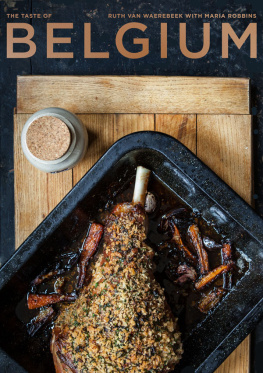
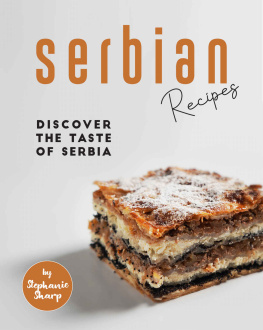
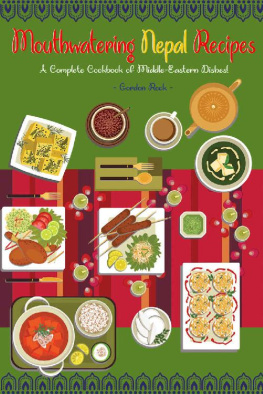
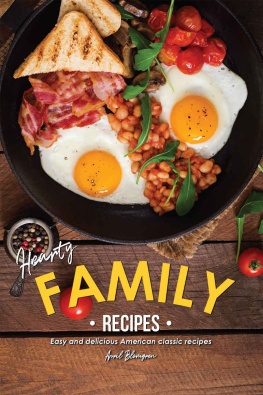
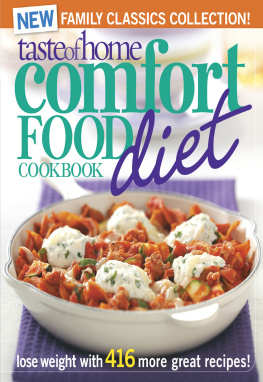
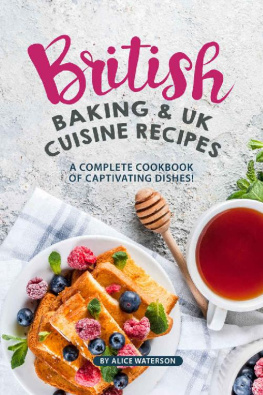

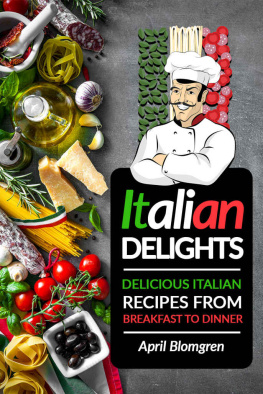
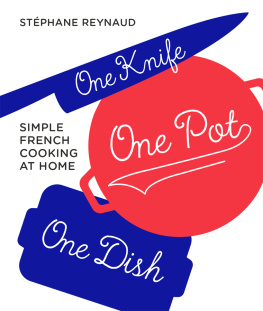



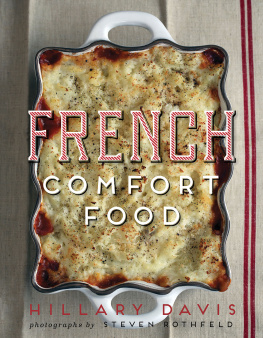


 DEDICATION
DEDICATION 